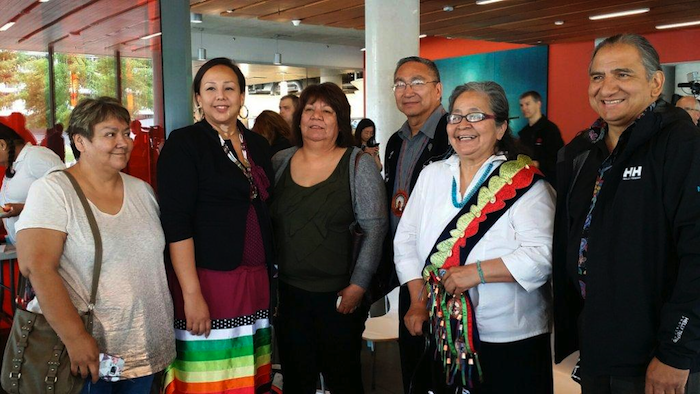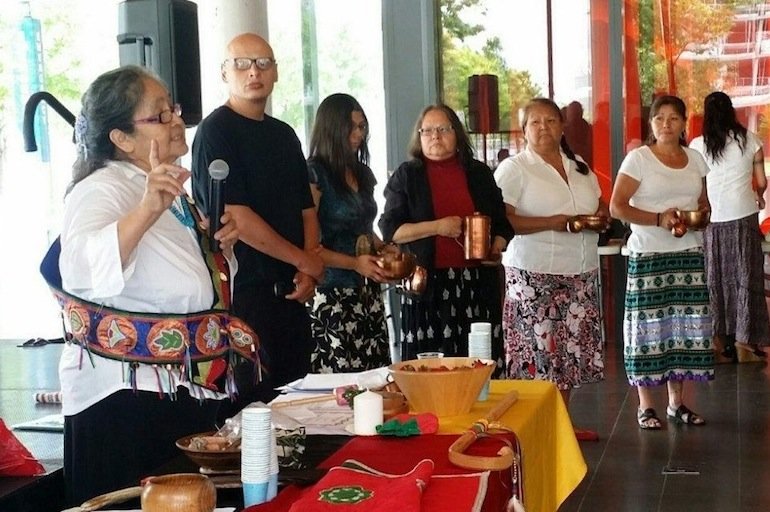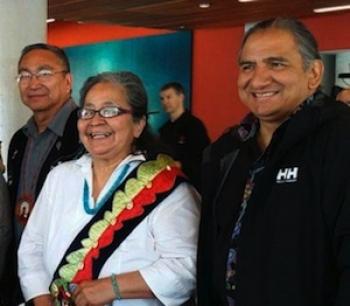By Barb Nahwegahbow
Windspeaker Contributor
TORONTO
The Canadian government has violated a range of international human rights obligations regarding First Nations peoples and their communities by failing to remedy water issues, says a report released June 7 by Human Rights Watch, an independent, international organization with staff in more than 40 countries.
The 92-page report entitled, “Make It Safe: Canada’s Obligation to End the First Nations Water Crisis”, is based on research conducted by Human Rights Watch between July 2015 and April 2016 in Ontario. The participating First Nations communities were Batchewana, Grassy Narrows, Shoal Lake 40, Neskantaga, and Six Nations of the Grand River.
Ninety-nine households in these communities were surveyed and an additional 68 interviews were conducted with officials or individuals living in these communities. Interviews were also done beyond these communities with academics, environment and water experts, chiefs and councillors and First Nations water operators.
Leaders from the participating communities, together with representatives of Human Rights Watch, were at the launch of the report in Toronto.
Amanda Klasing, senior researcher for the project, said “The report we’re launching today details what the people told us and also the reasons why this crisis persists despite the billions of dollars in investments.”
Klasing said the fact that money is invested does not mean the government is meeting its human rights obligations. In so many cases, the research found, the investments do not have positive outcomes.
Unlike Canadian communities off-reserve, First Nations communities lack binding, safe water protections, Klasing said.
“When systems are built, they’re not built to those standards that would exist in the province,” she said. Lower standards are applied to water systems for First Nations communities on-reserve.
Past funding has been inconsistent and insufficient to meet the basic water and sanitation needs of First Nations communities, Klasing said, “and there is little tracking and oversight to ensure that government commitments lead to lower risk and better water across First Nations communities.”
Chief Dean Sayers of Batchewana First Nation near Sault Ste. Marie, Ont. said, “There is a failure right now on the part of the settler governments, the colonizer governments that they are not fulfilling their obligations to meet our basic human rights. Part of the basic human right is to be able to drink the water, to be able to use the water for a full life, to live in harmony with our environment. To be able to look after the water, because our responsibility is to the water.”
Chief Sayers called on Canada to fulfill its obligations under the British North America Act of 1867, “or we will unilaterally take back complete jurisdiction and control of all of our resources. And when we do that, you can bet that our people will no longer be under boil water advisories.”
Canada, you have to come good, he said. “No more dumping your raw sewage into our waters. No more dumping those chemicals into our waters from all your mines and your plants. That’s not going to happen any longer. You need to aspire to our environmental assessments and we will make sure as leaders our people have a good quality of life, are able to drink their water…”
Contaminants in the communities visited by Human Rights Watch included coliform, E. coli, cancer-causing Trihalomethanes, and uranium. Exposure to these types of contaminants can have health impacts that range from serious gastrointestinal disorders to increased risk of cancer.
Amanda Klasing said she was most struck by the caregivers they interviewed, “because they have to shoulder an extra burden to ensure that the children in their communities, that their Elders and persons with disabilities or recovering from long-term illnesses are able to avoid exposure to this unsafe water. This burden and the daily indignity…causes stress and worry in communities that are often already in crisis,” said Klasing.
The water crisis impacts the cultural rights of First Nations people, the report found. First Nations people see water as living and a form of medicine. Not being able to drink the water is distressing, and ceremonies, customary fishing and hunting practices are impacted when the water is contaminated.
“It is the woman’s responsibility to care for the water,” said Cree Elder Pauline Shirt who conducted a Water Ceremony to open the news conference. She did a teaching about the ceremony and asked four women to offer a blessing for the copper vessels of water. Following the blessing, the women offered the blessed water to everyone present.
Human Rights Watch called on the Canadian government to meaningfully engage with First Nations communities to set priorities and indicators of success for committed funds, and to establish a First Nations-led Water Commission to allow First Nations to oversee and provide a level of oversight to ensure that the government’s commitments are being met.
Make It Safe may be viewed at: www.hrw.org/node/290522/

From left to right Linda Redsky, Shoal Lake 40 First Nation, Fawn Wapioke, Iskatewizaagegan 39 First Nation, Christine Pahpasay, Grassy Narrows First Nation, Chief Simon Fobister, Grassy Narrows First Nation, Elder Pauline Shirt, Chief Dean Sayers, Batchewana First Nation at launch of Human Rights Watch report on First Nations water crisis.

Cree Elder Pauline Shirt conducting Water Ceremony at launch of Human Rights Watch report on First Nations water crisis June 7.

